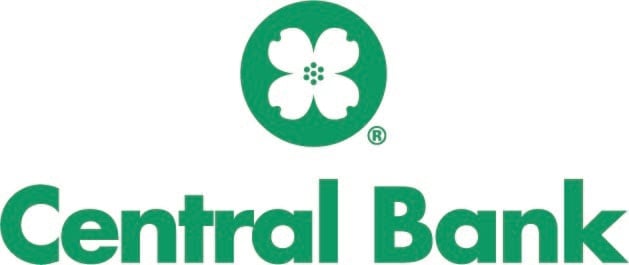Compare Current VA Loan Rates | Saturday, February 7, 2026
Rates are current as of February 7, 2026 8:10 PM EST
APR 5.67%
-0.09% 1wAPR 6.37%
0.01% 1wShow details
The Nerdy headline
Simplist is an online marketplace of mortgage lenders; human guidance is optional. You’ll make payments to a loan servicer, not to Simplist. Loans are not available in every state.
Home loans overall
NerdWallet rating
4.5
- Loan origination process can be completed online.
- Offers government-backed FHA and VA loans.
- Offers module that compares mortgage rates among other lenders.
- Offers loans in many states and Washington, D.C., but not nationwide.
- Does not offer home equity loans or lines of credit.

NMLS#1880338
APR
5.36%
APR
5.36%
Interest rate
5.25%
Est. mo. payment
$2,237/mo
Total fees
$5,000
Next Door Lending is a wholly-owned subsidiary of NerdWallet
Show details
The Nerdy headline
Next Door Lending, a mortgage broker, offers expert assistance shopping for and closing a loan, as well as specialty loans at competitive rates. Mortgages are not available in every state.
- Offers a variety of loan types, including first-time buyer programs and loans for self-employed borrowers.
- Real-time rate quotes available while working with a broker.
- Responsive customer service.
- Competitive pricing often available, especially for non-traditional borrowers.
- Does not publish interest rates online.
- No mortgage mobile app.
- Loans are not available in every state.
Show details
The Nerdy headline
Tomo’s online rates comparison tool is among the best we’ve seen for shopping rates — and both their rates and fees are competitive. While they don’t offer refinance or home equity options, the solid lineup of purchase loans could be a good fit for a wide range of home buyers, including those with credit challenges.
NerdWallet rating
5.0
- Comprehensive online rates comparison tool makes it easy to customize sample rates.
- Mortgage rates are on the low side, according to the latest federal data.
- Offers financing options for borrowers with lower credit and those without Social Security numbers.
- No refinance or home equity options.
- Loans not available in all states.
Show details
VA loans
NerdWallet rating
3.5
- Offers a purchase loan program with no lender fees for educators and first responders.
- Home equity lines of credit and renovation loans are available.
- Loans available for health-care professionals and self-employed borrowers.
- Mortgage rates are not published online.
- Doesn’t offer home equity loans.
Show details
The Nerdy headline
Home loans overall
NerdWallet rating
4.5
- Offers a variety of mortgage options, including jumbo loans, and FHA and VA loans.
- Offers home equity loans and lines of credit.
- Displays customized rates, with fee estimates, without requiring contact information.
- Doesn’t offer mortgages in all 50 states.
- Home renovation loans are not available.
Show details
The Nerdy headline
Midwest-rooted Central Bank offers an online application, which you can track via mobile app. But you’ll have to contact the bank for mortgage rates.
Home loans overall
NerdWallet rating
4.0
- Among the best when it comes to online convenience.
- Offers a full selection of mortgage types and products, including jumbo, home equity, and government loans.
- Claims to offer preapproval within 24 hours of loan application.
- You'll have to complete a loan application to see mortgage interest rates.
- Bank branch locations limited to the Midwest.
- Does not offer home equity lines of credit.
Show details
The Nerdy headline
New American Funding offers a large menu of loan products, including government loans, but its mortgage origination fees tend to be on the high side.
VA loans
NerdWallet rating4.0
- Offers a wide variety of purchase and refinance mortgages with an emphasis on helping underserved communities.
- Its home equity line of credit can be used for an owner-occupied or second home.
- Offers a program to enable buyers to make cash offers.
- Mortgage origination fees tend to be on the high end, according to the latest federal data.
Show details
The Nerdy headline
Farmers Bank of Kansas City lets you browse rates and apply online, but branches are Kansas-only. Get discounts by using the bank’s partner real estate network.
Home loans overall
NerdWallet rating
4.5
- Displays customized rates, with fee estimates, without requiring contact information.
- Offers home equity loans and lines of credit.
- Mortgage origination fees are on the low side compared to other lenders, according to the latest federal data.
- Doesn’t offer government-backed FHA or USDA loans, or adjustable-rate mortgages.
- Home renovation loans are not available.
- Mortgage rates are on the high side compared to other lenders, according to the latest federal data.
See more options
About these rates: The lenders whose rates appear on this table are NerdWallet's advertising partners. NerdWallet strives to keep its information accurate and up to date. This information may be different than what you see when you visit a lender's site. The terms advertised here are not offers and do not bind any lender. The rates shown here are retrieved via the Mortech rate engine and are subject to change. These rates do not include taxes, fees, and insurance. Your actual rate and loan terms will be determined by the partner's assessment of your creditworthiness and other factors. Any potential savings figures are estimates based on the information provided by you and our advertising partners.
Explore historical VA rate trends
See how rates have changed over time to understand past patterns and economic fluctuations

Historical timeline
Loan purpose
Loan type
National average 5.67%
Today's average mortgage rates
| Product | Interest rate | APR |
|---|---|---|
| 30-year Fixed | 5.97% | 5.99% |
| 30-year Fixed FHA | 6.12% | 6.86% |
| 30-year Fixed VA | 5.52% | 5.67% |
| 20-year Fixed | 5.95% | 5.97% |
| 15-year Fixed | 5.42% | 5.44% |
| 10-year Fixed | 5.57% | 5.58% |
| 3-year ARM | 8.19% | 7.46% |
| 5-year ARM | 6.01% | 6.37% |
| 7-year ARM | 5.99% | 6.29% |
| 10-year ARM | 5.97% | 5.99% |
Accurate as of 02/07/2026.
Data source: ©Zillow, Inc. 2025. Use is subject to the Terms of Use
Today's VA mortgage rates | Saturday, February 7, 2026
VA Mortgage Rates: What You Need to Know



Taylor Getler
Michelle Blackford
Jeanette Margle
Current VA mortgage rates
What determines my VA loan interest rate?
- Credit score: Generally speaking, higher scores come with lower rates. While the VA doesn’t set a specific minimum credit score, lenders will generally want to see a score of at least 620.
- Existing debt: Ideally, your total amount of monthly debt obligations (including your mortgage and other loans) should not account for more than 41% of your monthly pre-tax income.
- Loan term: While shorter mortgage terms will have a higher monthly payment (say, a 15-year loan vs. a 30-year loan), they also come with lower rates.
- Down payment: While this isn’t required for a VA loan, a down payment will lower your loan-to-value ratio, which can result in a lower rate.
- Overall market conditions: Average mortgage rates fluctuate daily and are influenced by many economic factors, as well as the actions of the Federal Reserve.
- Lender: Interest rates can vary by lender, which is why it’s important to shop around with at least three. NerdWallet’s experts have curated a list of our top picks for VA lending.
VA loan eligibility requirements
- Active-duty service members who served 90 continuous days.
- Veterans who have met length-of-service requirements (generally 90 days in wartime and 181 days in peacetime).
- Service members or veterans who have completed 90 days of active-duty service or six creditable years in the Selected Reserve or National Guard.
- Surviving spouses of veterans who died while in service, died from a service-connected disability, went missing in action or were a prisoner of war. Surviving spouses who have remarried are only eligible if the marriage was after age 57 or after Dec. 16, 2003.
How VA loans compare with conventional mortgages
Factors to consider | VA loans | Conventional loans |
|---|---|---|
Lenders | ||
Interest rates | ||
Property type | Primary home only | Primary or second home, investment properties |
Minimum down payment | Zero, most instances | Usually at least 3%. Some lenders offer special zero-down loans. |
Mortgage insurance | No mortgage insurance. One-time VA funding fee of 1.25% to 3.3% of loan amount for purchase mortgages. | Private mortgage insurance usually required if down payment is less than 20%. |
Minimum credit score | No minimum set by VA, but a 580-620 FICO score is a common lender requirement. | A 620 FICO score is typical. |
Maximum debt-to-income ratio | Lenders will give more scrutiny if DTI is over 41%. | Ideally under 36%, but higher ratios can be accepted. |
Pros and cons of VA loans
- Buy with zero down
- No mortgage insurance
- Flexible loan qualifying standards
- Requires a one-time funding fee
- Can only be used for a primary residence
- Restricted to veterans, active-duty service members and eligible surviving spouses
Learn more about VA loans:
Frequently asked questions
Will VA loan rates go up or down?
Average mortgage rates fluctuate daily and are influenced by the economy’s overall rate of growth, the inflation rate and the health of the job market. See NerdWallet’s mortgage interest rates forecast to get our take.How much does a VA loan cost?
Most borrowers will pay a VA funding fee. For purchase loans with a zero-down payment, the VA funding fee is 2.15% of the loan amount if this is your first VA loan. It can be lower for some refinances and can be waived for disabled veterans and some surviving spouses. Active-duty service members who have received a Purple Heart are exempt from the funding fee. You’ll also be responsible for other closing costs, such as appraisals and title insurance.What’s the difference between a VA interest rate and APR?
The interest rate is the percentage that the lender charges for borrowing the money. The APR, or annual percentage rate, can reflect a more accurate cost of borrowing. The APR calculation includes fees and discount points, along with the interest rate.APR is a tool used to compare loan offers, even if they have different interest rates, fees and discount points.
More mortgage tools and resources
Latest mortgage news and analysis
View rates by loan type or state
Get even more specific with rates personalized to your situation







